With a ceasefire in place in Gaza, DEC member charities and their local partners are working to rapidly expand their humanitarian response.
They have already been providing lifesaving aid in Gaza over the past months, but with the increased aid access our members are now working to reach more people with food, shelter, medical care and basic supplies. The needs are huge.
As many people return to their communities and look towards an uncertain future, DEC charities will be providing vital support to families on the move.
What does the ceasefire mean for DEC member charities' ability to deliver aid?
The ceasefire provides DEC charities an opportunity to scale up the aid they are delivering in Gaza, as well as some respite from the enormous challenges and risks they have faced every day in their work.
Increased access is allowing more urgent aid to be delivered to people, many of whom are on the move and returning back to their communities and need urgent support.
Hundreds of trucks containing humanitarian aid are now entering Gaza every day, and some bakeries, hospitals and other essential facilities that were forced to close during the conflict are expected to reopen in the coming weeks.
Madara Hettiarachchi is head of Programmes and Accountability at the DEC, she explains:
"Over the past two weeks we have seen hundreds of thousands of people returning to their communities in the north of Gaza, and DEC member charities and their local partners are doing as much as they can to quickly adapt their programmes to support as many of those families as possible.
It is hard to overstate the level of destruction in the north - many people are returning with only as much as they can carry with them on the long walk from the south, to find that their homes are no longer standing - Madara
Local market prices are reported to have fallen since the ceasefire, meaning basic supplies are becoming more affordable, and people are beginning to have access to a wider range of goods. DEC member charities and their local partners are also able to procure goods more cheaply within Gaza, such as essential supplies for hygiene kits and fresh food items.
Donations to the DEC Middle East Humanitarian Appeal are vital to enabling them to reach more families with lifesaving aid.
What are DEC charities doing to support people in Gaza now?
With so many people on the move as they begin returning to their communities, DEC charities are supporting people with their most urgent needs including shelter, food, medical care, clean water and basic supplies.
Cold weather and rain in recent weeks have further worsened the conditions in camps, with floods inundating tents, and cold temperatures causing sickness amid a dire shortage of medical care.
Member charities and their local partners continue to provide winter support including warm bedding, clean drinking water and hygiene supplies, but the needs are huge.
Over the past months, they were constantly evolving their response to cope with limited deliveries of aid, and focusing on support that does not rely on external supplies, such as cash assistance, medical care and psychosocial services.
With the ceasefire now in place, DEC charities are beginning to adapt their response based on the increase in aid access and the movement of people within Gaza.
Some of examples of how DEC charities have supported people in Gaza over the last month:
- Action Against Hunger, with the support of DEC Appeal funds, has provided lifesaving water to more than 120,000 individuals in North Gaza and Gaza City. As a result of damaged water systems, distribution through water trucking remains the only possible source of clean water in some areas.
- ActionAid's local partner in Gaza has been providing people with fresh vegetables. Fresh produce has previously been in limited supply in Gaza and 1.8 million people are facing food shortages.
- Oxfam and their local partners are providing families in the Deir al Balah and Khan Younis areas of Gaza with much-needed cash assistance. They will also be providing psychosocial support for women dealing with ongoing trauma.
- The British Red Cross and their local partners are providing vital medical care to some of the many sick and injured, supporting hospitals and clinics and providing essential medicines.
- Concern Worldwide and their local partners have been distributing clean water every two days in Gaza, to displaced people living in camps. They are also distributing hygiene supplies, and building sanitation facilities in camps.

Action Against Hunger water trucks have provided water to more than 120,000 individuals in North Gaza and Gaza City, Jan 2025. Image: Action Against Hunger
Are any DEC member charities working on the release of hostages?
One of the DEC members is the British Red Cross, part of the International Red Cross and Red Crescent Movement, which includes the International Committee of the Red Cross (ICRC).
The ICRC, as a neutral humanitarian intermediary, facilitates the safe transfer of hostages and detainees. They helped reunite more than 100 hostages with their families during a pause in fighting in 2023. Now, in a multi-phase operation agreed by the parties, they are helping to facilitate the ongoing exchange of hostages and detainees, as per the terms of the current ceasefire. Specialist ICRC staff, including doctors, are on-hand to provide care as needed.
Mirjana Spolijacric, president of the ICRC said: “Our teams are ready to continue to implement the agreement so that more hostages and detainees are released, and more families reunited”















